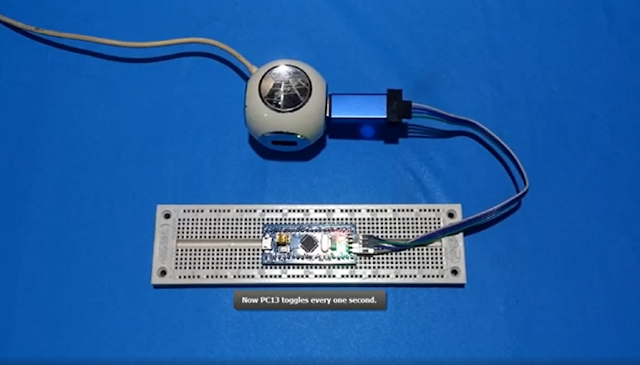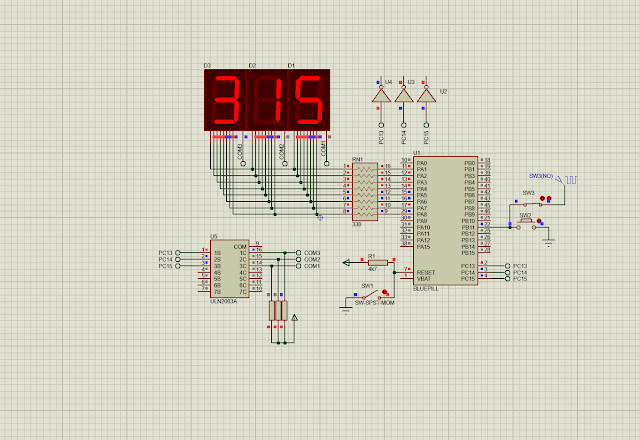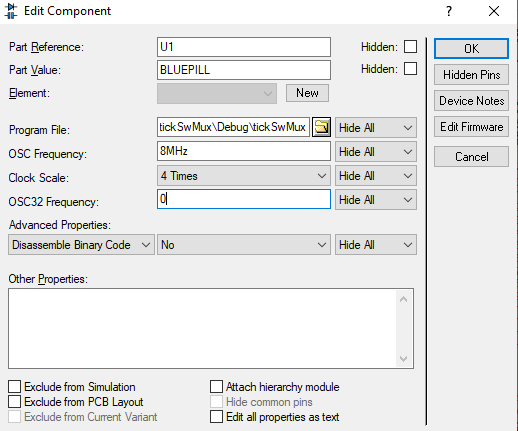Systick is timer that come with all of ARM Cortext-M3 micro-controllers. It's useful for creating a precise timing delay, time measurement, multi-tasking, etc.
In this example, I will use STM32 ARM SysTick to blink an LED. It's the built-in LED on STM32 Blue Pill module.
 |
| Wiring Diagram |
STM32CubeIDE Source Code:
Click here to download its source file.
 |
| Running Program on BreadBoard |
For other similar posts please check,
- Getting Started With STM32F103C8T6 Module with STM32CubeIDE
- STM32F103C8T6 Blue Pill SysTick and Multiplexing Display Example
- STM32F103C8T6 Blue Pill Switch And Multiplexing Display Interface Using SysTick
- STM32F103C8T6 Blue Pill SysTick LED Blinking
- STM32F103R6 Shifts LEDs Using STM32CubeIDE
- STM32F103R6 Common Anode Seven Segments Display Example



